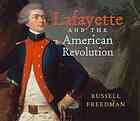Huxley, A. (1969). Brave new world. New York: HarperPerennial.
I listened to the audiobook, and I'm such a visual learner that I had to check out the print version to read some of the names in particular. I can't believe I've never read this book before now, and I have mixed feelings about it. This book is creepy. It's all about a future society where people are reproduced in a laboratory/test tube situation, without families. Mother and father are actually shocking words because they're unknown. People are essentially raised in laboratories, created into a caste system where their fate is as predetermined as their jobs. People are encouraged to take a drug called Soma to numb their emotions, promiscuity is the norm, and monogamy is frowned upon. Children are "conditioned" with sayings repeated over and over, until they become truth.
A man named Bernard Marx and his friend Lenina go on a trip to a reservation in New Mexico, where they meet Linda and John. Linda grew up in London, but shockingly became pregnant with John, which is why they are on the reservation. They eventually accompany Bernard and Lenina back to London, where Linda dies, and John becomes a novelty in London society, known as "the Savage". Through John's eyes, we realize how dystopian society has become. John becomes as hounded as a modern day movie star dodging paparazzi, and becomes the unwilling star of a "feelie", or movie.
I thought it was incredible, and disturbing, how many of Huxley's predictions came true. This book was written in 1932, and yet features in vitro fertilization, paparazzi, etc.

